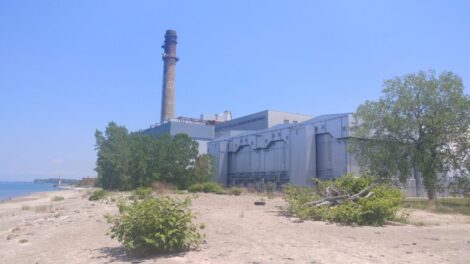Gillibrand, Schumer support study of Chautauqua Lake

Pictured is a section of the Chautauqua Lake shoreline. U.S. Sen. Charles Schumer and Sen. Kirsten Gillibrand are bringing the America’s Water Infrastructure Act of 2018 to the Senate this year that includes a provision impacting Chautauqua Lake.
U.S. Sen. Charles Schumer and Sen. Kirsten Gillibrand are bringing the America’s Water Infrastructure Act of 2018 to the Senate this year that includes a provision impacting Chautauqua Lake.
A provision in the America’s Water Infrastructure Act of 2018 seeks funding to authorize a Chautauqua Lake Feasibility Study. The study would allow the U.S. Army Corps of Engineers to evaluate the lake’s phosphorus runoff, study flood risk management measures, assess ecosystem restoration efforts and address accelerated erosion along streambanks.
Gillibrand, a member of the Senate Environment and Public Works Committee, voted unanimously with committee colleagues to advance the Senate bill to the Senate floor for consideration earlier this week.
“With this provision, we are one step closer to stopping the algal blooms that have been plaguing Chautauqua Lake’s water quality and harming the economy of the surrounding communities,” Gillibrand said.
In a news release, Gillibrand’s office cited harmful algal blooms, erosion causing excessive sediment deposition impacting water quality and the lake’s pull of recreation and tourism as primary reasons for including the provision. The study would provide a better perspective at changing flood risks and insight into future environmental degradation and property damage.
“Chautauqua Lake is an important tourism destination for many people in Western New York, and local residents should be able to trust that the lake is a source of clean water,” Gillibrand said.
Gillibrand and company also mention that the study would inform the community on best practices regarding weed growth, as well as algae growth. Currently, the New York State Department of Environmental Conservation approved permits for herbicide use to be applied to 191-acres on the lake by the Chautauqua Lake Partnership and lake management company SOLitude Lake Management to combat overgrown weeds.
The news release highlights Chautauqua Lake’s recreation and tourism for boating and fishing and its 13,000 acres in size with 100,000-acre watershed including 14 major tributaries, and cited excessive nutrients like phosphorus as a hazard to watershed’s ecological state.
“This critical provision will help us combat the harmful algal blooms in Chautauqua Lake that have negatively impacted water quality and hurt the regional economy,” Schumer said. “Chautauqua Lake is an important tourist destination that brings in millions of dollars to Chautauqua County.”
Schumer also supported the provision’s inclusion in the act and promised continued efforts to secure New York’s natural resources.
The Chautauqua Lake Feasibility Study would also focus on minimizing flood risks that harm the economic viability of the lake. In total, the U.S. Army Corps of Engineers would be authorized by the bipartisan America’s Infrastructure Act of 2018 to study navigation, flood protection and aquatic ecosystem restoration.
“As a member of the Environment and Public Works Committee, I was proud to fight to include this Feasibility Study in this year’s America’s Water Infrastructure Act of 2018, and I will continue to work with my colleagues in the Senate to make sure New York has the resources necessary to protect our local waterways,” Gillibrand said.
Schumer shared a similar sentiment about protecting the lake in the future.
“This is a vital step in the right direction and I promise to fight tooth and nail to make sure that New York state has the tools and resources it needs to protect and preserve its natural resources,” he said.






